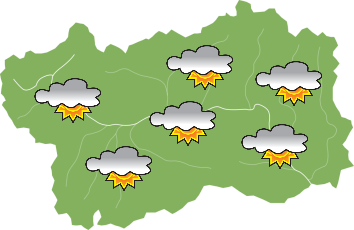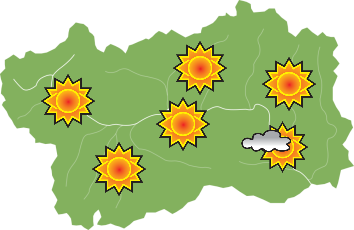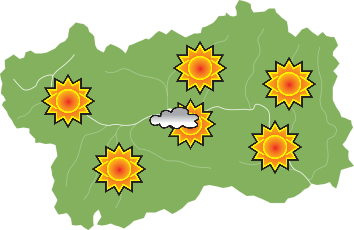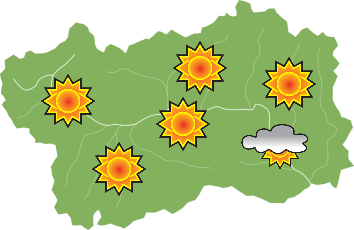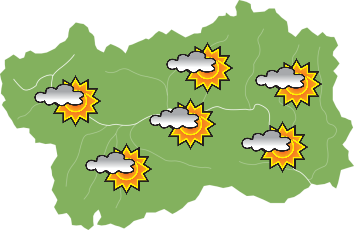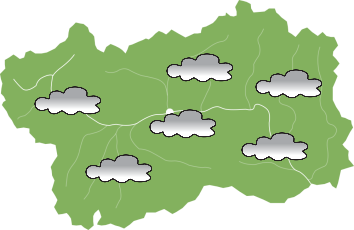Description of the route
The stone that dominates Valmeriana is a granatiferous chlorite-schist with a high talc content, a rock that has been exploited for industrial use, for the extraction of countless tons of material destined for the production of millstones and soapstone pots, since ancient times. This rock is characterised by a “soft” chloritic talcose matrix which is therefore easy to work by hand and on a lathe, and the presence of red garnets and black chloritoids, very hard minerals with a noteworthy abrasive power, which are useful in grinding grain.
In Valmeriana the millstones were extracted and refined, and after having been loaded onto sleighs, they were brought to the bottom of the valley, where they were probably put into storage, refined and then levied. The material extracted was used up to recent times for turning soapstone vases and pots (hydraulically operated lathe). Up until recently it was possible to see a large accumulation of waste (tenons or males) near the furnace for melting metal, dating back to the 17th century, which appeared inside the vases once the turning was complete. The first historical information regarding the use of the quarries of Valmeriana dates back to the 11th and 12th centuries, when the Lords of Vercelli, Ivrea, Viverone and Bard exchanged much correspondence, from which a keen interest in monopolising the profitable traffic of millstones emerged. From the documents relative to those years, we learn that thousands of millstones passed through Bard, they originated from Valmeriana in particular and from Saint-Marcel and, considering that part of the product was also used by the millers from Valle d’Aosta, very high totals were reached regarding the actual number of millstones produced in our region.
How to get there:
From the centre of Pontey, proceed in the direction of Chambave until you reach the road on the left with the signposts for the villages of Verthuy and Cloutraz. Having reached the village of Cloutraz by car, where the paved road ends, proceed on foot, following the signposts indicating the visiting “itinerary” to the geological site.
TECHNICAL NOTES
Altitutes: 1028 - 1850 m
Overall duration of the tour: one day 2 hours and 40 minutes
Recommended period: May - October
Timing: 2 hours and 40 minutes (Cloutraz - Alpe Valmeriana: approximately 2 hours, the millstone trail until the third extraction site: approximately 40 minutes).
The times take into account only the times required to reach the geological sites, the times dedicated to observation are not included.
Itinerary:
From the village of Cloutraz proceed on foot along trail no. 1 for approximately two hours, until you reach the Valmeriana Alp (altitude: 1791 m), from here, take trail no. 3, until you are almost at the Alpe Salé, in the direction of Bellecombe.
Along the route, which is scattered with the remains of ancient millstones sketched or dug out of the rock, it is possible to stop off at three extraction sites, in particular: approximately 10 minutes after Alpe Valmeriana, a first quarry which is quite evident, consists of a rock wall positioned approximately fifty metres uphill with respect to the trail, which bears the signs of the millstones that have been extracted, after a further 10 minutes approximately, a second site, deviating a little from the trail, highlights the signs of the ancient work, lastly, after approximately 15 minutes, a third extraction site, once again uphill with respect to the trail, highlights around ten splendid millstones sketched above a large rock resting on the slope.





